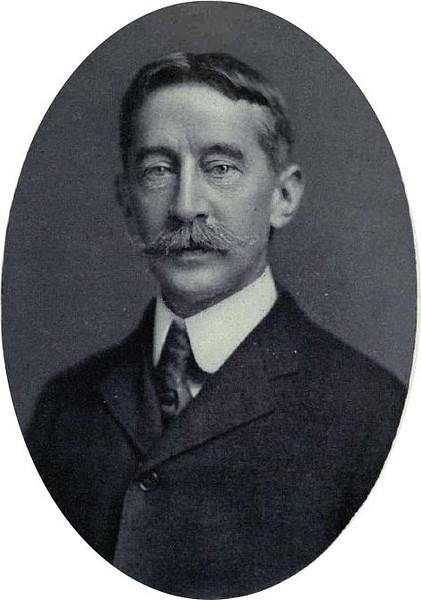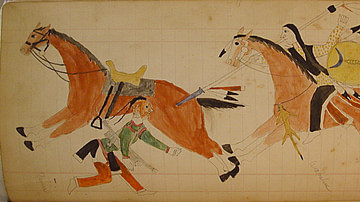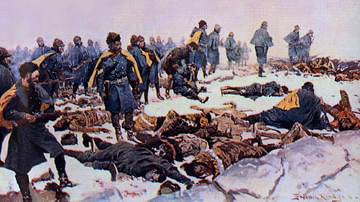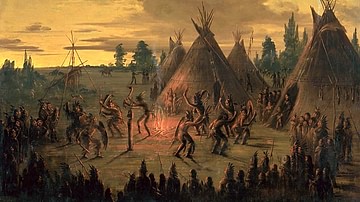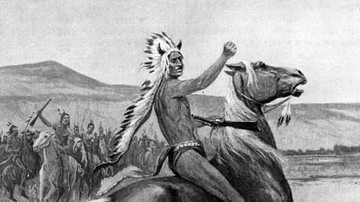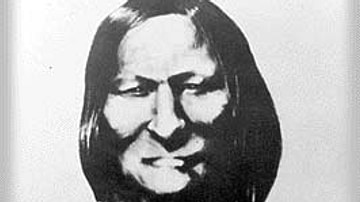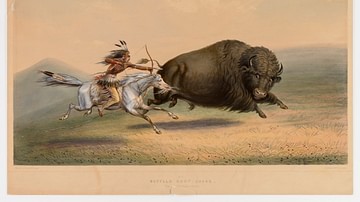The Red Eagles is a Cheyenne hero tale featuring the popular champion Mok-so-is, the child hero best known from the legend Found in the Grass, popular among many Algonquin-speaking nations including the Cheyenne, Arapaho, and Blackfoot. The story is especially interesting for its inversion of the eagle, which is usually depicted as a force for good.
The eagle is recognized by many Native American nations as the leader of the birds and the specially chosen messenger of the Creator. All birds were understood as messengers of the divine, but the eagle had the closest relationship with the Creator God and is usually depicted in a highly favorable light. In The Red Eagles, however, the birds are the villains of the piece, and this was most likely done to highlight a common theme in Cheyenne tales warning an audience that things are not always as they appear. This story and others like Found in the Grass are still popular among the Cheyenne and are still told today as they were in the past.
Theme & Child Hero
The story also presents another common theme of Native American literature generally and Cheyenne stories specifically: that, no matter how tragic an event might seem, the Creator is ultimately in control, and all aspects of life are unfolding as they should. The old chief agrees to the demands of the red eagles because he understands this, even though he is afraid, and his faith in the Creator's goodwill is ultimately rewarded.
Mok-so-is, the hero of the tale, is a young boy who is also depicted along the lines of many hero boys in Cheyenne legend and lore. Anthropologist and historian George Bird Grinnell (l. 1849-1938) comments:
Where the hero is a boy [in Cheyenne tales], he is often described as a poor boy, perhaps without relatives, at all events, without wealth or influence. Such boy heroes are often called merely Makos, Mahkos, or Mahkuts, terms which signify "the little one," a name often applied to the youngest child in a family, whether it be male or female. Another nickname often applied to young children is Mok-so-is, usually translated as "potbelly."
(Campfires, 177)
The child hero character in any Cheyenne tale emphasizes that same cultural message of things not always being as they appear. Mok-so-is, in this story, is small enough for the chief's son to take him on his lap but proves himself a great hero in the quest for the return of the old chief and winds up marrying the chief's daughter. Mok-so-is, and other child heroes like him, also highlight another important Cheyenne cultural value: humility. It is not always the strongest, richest, or bravest who wins the day but can be anyone, no matter their status, who tries to do what they can for others, even a small boy.
Text
The following is taken from By Cheyenne Campfires by George Bird Grinnell (1926) republished by University of Nebraska Press in 1971.
There was once a big Cheyenne village – a very large one. A young man from the village, the son of the chief, went up on top of a high hill and made a pit for catching eagles. After the young man had finished it, he went out to the pit one day very early in the morning and, that day, he caught some eagles. After he had caught several, he saw four eagles flying over the pit. When he looked up, he always saw these eagles flying above him. They were fine-looking birds with red feathers and once when flying over him they called down to him from the air over his head and said that he would never be able to catch them unless he put out his father's body as a bait. After night had come, he went back to the village and, when he arrived at the lodge, he refused to speak or eat.
Next morning, before day, he went back to the pit and, again, the red eagles came close to him. They were very handsome birds. Again, they told him that he would not be able to catch them unless he used his father's body as a bait.
He went home in the evening, feeling very sad, for he wanted very much to catch these eagles, and again he would neither speak nor eat. Four times in all he went up to the pit and, each time, the eagles circled close to him and told him to use his father for bait so that he might catch them. At last, on the fifth day, his father asked his son what the matter was and why he refused to speak or eat. The old chief said: "I think the eagles must have told you something. Now, whatever it is they have asked you for, let it be done"
When his father spoke to him in this way, the young man said, "Well, I will tell you," and he told him about the four red eagles and that they had told him that they could not be caught by him unless he used his father for bait. The old chief said that this was good and that he ought to do as the eagles had advised him. After the chief had said that he should do what the eagles directed, the young man began to eat.
His father told him to go up to the pit the first thing in the morning. During the night, the man's father did not sleep, for he was afraid, because he was going to be used for the bait for the eagles. Early next morning, they went up to the pit together. When they reached it, the father said, "Go to work now and kill me just as if I were an animal. Do not hesitate about it."
So, the young man shot his father down and dragged him to where he put his bait, cut him open, and laid him down. Then he went inside the pit with his father lying above him as a bait. After sitting there a few minutes, he heard a noise far up in the air over his head. He could hear eagles flying down. He looked up and saw the four red eagles all flying down together. They alighted, two on the arms and two on the legs of his father's body and, before he could seize one of them, the four eagles flew up in the air with the body, till quite out of sight.
When he saw them going, he leaped out of the pit and began to mourn his father. The people in the village could see the four eagles carrying off the old man till at last he was out of sight. The young man returned to the village weeping and the whole camp began to mourn for their chief. No one ate anything. They were sorrowing for their chief.
Next morning, a small boy was out playing – hunting little birds. He was a poor orphan and lived with his grandmother. When the poor boy came in at evening, he said, "Grandmother, what is everybody crying about?" And she said, for the boy was ignorant, "Why, don't you know? Our great chief has been carried off by the eagles." The boy said, "Is that possible? Did the eagles carry him off? Now, you had better go at once and tell his people that I will follow him." This was as much as to say that he knew where he had been taken. His grandmother said, "How are you going to be able to follow him?" He said, "That is something that I must do. Do you go and tell them that I will follow him. Go on. Go and see his son."
The old woman went to see the son of the chief who had been carried away. When she had found him, she said, "My grandson, Mok-so-is, may be telling the truth or perhaps he may not, but he wants to follow the chief who has been carried off by the four red eagles."
The young man who had killed his father said, "Is that true, old woman?" The old woman answered, "That is what he says. Why do you not go down and have a talk with him yourself?" The young man arose and said, "I will go and see him." He went to the lodge where the oy was, took him on his lap, and asked him if it was true that he wished to follow his father, and Mok-so-is said, "Yes, it is true." The young chief said, "If you can do what you say you can, I have a very good-looking sister and I will give her to you for your wife."
Mok-so-is said, "The first thing we must do in the morning is to go up to the top of the hill where the pit is. I want four heart bladders [the skin that covers the heart of an animal, the pericardium] filled with air and tied to each heart bladder one small down feather." He told his grandmother to pound up a little meat, as he would carry that also. Then he made a basket of willow twigs like those they used on a travois to carry children in when moving, and to each corner of the basket he tied one of the bladders.
They carried this up to where the pit was, and many people went up with them. They put their basket right over the top of the pit where the bait had been. Mok-so-is got in the basket and the young man who had killed his father got in with him. Then Mok-so-is said to the people who were looking on: "Come, get around the basket and make a motion as if to lift it up. Do this four times and, the fourth time, lift the basket and throw it up and let go. We will be back with the chief in five days." The people gathered around the basket and all who could took hold of it, raised it four times, and the fourth time let it go.
The basket went up slowly, swaying from side to side, just as the eagles had done. All the people watched it till it went completely out of sight.
When the basket had risen very far up indeed, those who were in it felt it striking against something. They looked up and saw that they were touching the sky. There was a hole there – perhaps the hole had been made by the basket striking the sky. Mok-so-is said, "Now we had better get out and go on foot and leave the basket here," and they got out and started, walking on the ground.
All that day they followed the trail and, that evening, came to a big village. Mok-so-is told his friend to wait where he was and left him and went on toward the camp. On the edge of the camp, he came to a very small, old lodge. He went inside and found an old woman sitting there. He said, "Grandmother, I want something to eat," and asked the old woman what the news was. She said, "Why, haven't you heard? Four red eagles went by here with some chief that they were carrying away. They went right past this way." After he had finished eating, Mok-so-is said, "Well, I think I'll go out and play around a while." He went back to where the other man was and said, "They carried your father past here."
Next morning, they traveled all day till they came to another camp. It took them the whole day and they arrived about sunset. Here, the same things happened.
At the third village they reached, Mok-so-is went into an old woman's lodge. She said that the four red eagles had passed near her lodge carrying the chief, that he was not dead, but that the next day the eagles were going to have a feast on him.
When they arrived at the fourth village, Mok-so-is went into an old woman's lodge and talked with her. This old woman said, "Do you see that large lodge in front of and toward the center of the circle of lodges? That is old Red Eagle's lodge and, tonight, he is going to have a feast on that chief. The four red eagles are his four sons." The old woman also told him that they were going to sing four songs and, the fifth time they sang, they were going to cook the old chief in a big kettle so that old Red Eagle could have a feast.
Then Mok-so-is went back to his friend and said, "Let us go over to that lodge and see what they are doing." When they got there, they found that the singing had not yet begun. Mok-so-is and his friend went to the lodge and looked in. There they saw sitting many people who were eagles and, in the back part, sat old Red Eagle. He was so old that nearly all his feathers had fallen off from him. They looked around and saw the old chief – the young man's father – building a fire and heating water in a kettle. It was very warm in there. Mok-so-is said to his friend, "Come, it will be some time before all is ready. Let us go round to the different lodges and fasten the doors." They went around and, against the door of every lodge, put up a barrier so that the people could not rush out quickly.
When the old chief came out of the lodge to bring in more wood for the fire, Mok-so-is spoke to him, telling him that they were there to help him. Then Mok-so-is and his friend went out to the center of the village and made three big clubs with knotty heads. Soon, they heard them singing in the lodge. They sang three times and, as the fourth song was to be the last one, Mok-so-is and his friend went back and entered the lodge.
When Mok-so-is went in, he was carrying the three clubs. He handed one to the old chief and one to the son. The three men killed Red Eagle's four sons and everybody inside; all were eagles. The four red eagles were so surprised that they could not do anything. Then the young men picked up old Red Eagle and threw him into the pot. Mok-so-is then turned to his friend and said, "See here, you wanted these four eagles. Now take their feathers." Afterward, they went to the different lodges and killed all the other eagles and came back loaded with eagle tail feathers.
Then they went back to the place where the basket had been left, went in through the hole, and found the basket there still. When they got in their basket, they found a cedar limb sticking through it. Mok-so-is took the air out of the bladders and tied them onto the cedar limb. Then he told the father and son to get on the cedar limb and they also tied their bundles of feathers to it. Then they slipped down through the same hole and sank down to the eagle trap.
It was the fifth day, and all their people were waiting for them. When Mok-so-is got down to the earth, the people spread a buffalo robe and carried him down the hill in it. They had already put up a lodge for him, and they carried him down to it in the robe. He was married to the chief's daughter and never afterward had to lift a wooden bowl of water to his lips when he was thirsty. Some woman always held the wooden bowl to his lips.

